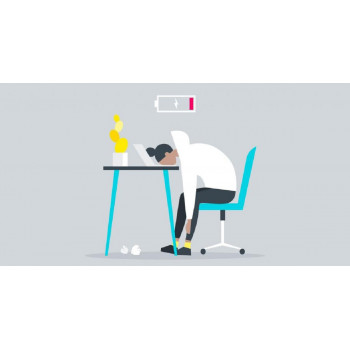Burnout at work

Burnout at work is not just a temporary state of stress that many people experience, but a serious problem that affects their performance and overall well-being. It all starts with debilitating fatigue, which develops into emotional detachment and ends with a feeling of uselessness. People feel that they are losing control over their work and become cynical, which affects both their productivity and their personal lives.
Research shows that burnout affects a significant proportion of professionals, especially in areas where high workload and pressure are constant, such as in medicine or finance. It can manifest itself due to overload, conflicts in the team, or lack of support from colleagues and management. The main symptom is complete exhaustion, both physical and emotional. When work stops bringing pleasure, everything seems hard, and each task turns into an insurmountable task.
What can you do to cope with this condition? First, it is important to take care of yourself. Without adequate sleep, healthy nutrition, and rest, it is impossible to recuperate and continue working effectively. Sometimes it is useful to write down for a week how you spend your time, who you communicate with, and what tasks cause you the most stress. This will help to identify unnecessary tasks and free up space for what brings joy and energy.
If you are a manager, it is worth paying attention to the state of the team. Burnout often affects not one person, but the entire organization. It is important for a manager to create a work environment where employees can feel supported and not overloaded.
Changing your approach to work can also be useful. Think about what exactly can be improved: maybe you should delegate tasks that require too much effort, or change your priorities? If you feel that you are on the verge of burnout, it may be time to consider changing jobs or even careers.
It is important to understand that burnout is not just a temporary condition, and you need to approach its solution thoroughly. Learning to recognize its early symptoms and take steps to eliminate them will not only help you recover, but also make your career more sustainable and successful.



